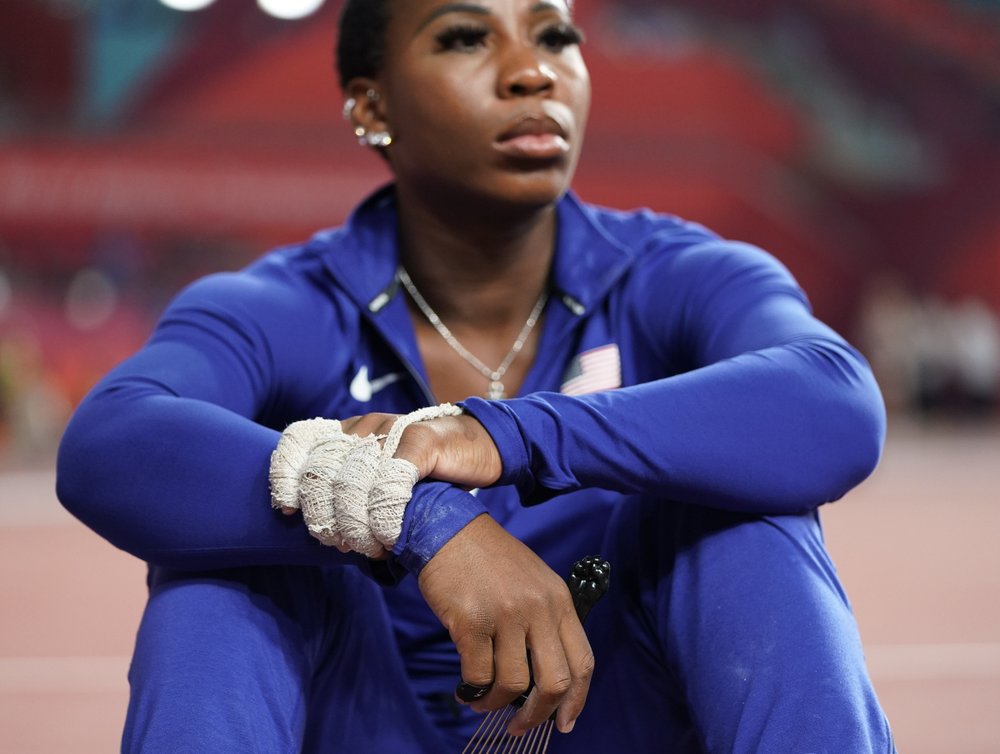
Gwen Berry, of the United States, waits for the women’s hammer throw final to begin at the World Athletics Championships in Doha, Qatar, Saturday, Sept. 28, 2019. (AP Photo/David J. Phillip)
DOHA, Qatar — If Gwen Berry gets another chance on the medal stand someday, she probably won’t repeat the protest that turned her into a lightning rod over the summer.
Still, she has no regrets about raising her fist during “The Star-Spangled Banner” after winning gold at the Pan Am Games in Peru last month.
The American hammer thrower didn’t earn near the same platform at world championships Saturday night. All three of her throws in the finals ended up in the netting. She finished 12th.
Afterward, she stopped and made her first extended comments since the night in Lima that, among other things, drew her a reprimand and 12-month probation from U.S. Olympic officials.
“I really didn’t think it was going to be as big as it was,” said Berry, who is from St. Louis and went to Southern Illinois. “I just did it for who I did it for, and for myself. I did it as a testament to myself, and for people who suffer. It’s crazy how people suffer sometimes.”
Her message was not that different from the one sprinters Tommie Smith and John Carlos delivered 51 years ago when they raised their fists at the Mexico City Games, then became internationally known for their fight to shed light on their country’s history of social injustice for blacks.
Smith and Carlos got booted from those games, and only this month were they finally given a spot in the U.S. Olympic Hall of Fame.
Berry got her own message from the U.S. Olympic and Paralympic Committee. Her reaction to it: “I don’t care.”
She expects rules regarding political messaging to be much better laid out for next year’s Olympics in Tokyo, “but it doesn’t affect me.”
If she were to earn a spot on the podium in Tokyo, (Not impossible considering U.S. hammer throwing is on the upswing; an hour after Berry was done, teammate Deanna Price won gold for America’s first-ever worlds medal in the event) Berry’s not so sure she’d do the same thing she did in Lima.
“I feel like it would be redundant. You can raise your fist on the podium and still (accomplish) nothing,” she said. “But I’m all about the action now. I feel like I can extend it out to universities and different schools, I can speak about it, do more athlete engagement whenever I’m asked. Be more vocal, and find other forums besides just track and field.”
But Lima — she’d do that all over again, and she wishes her trip to Doha would’ve turned out better.
“As an athlete, you have to focus on what you can focus on before you aim to inspire, because, honestly, no one listens to a loser,” she said. “I’ve got a lot of work to do on the field. But as far as being an inspiration to people, I really want to do that, and I feel like I should.”

